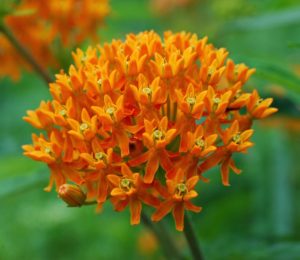Pleurisy is a plant. The root is used as medicine.
Contents
Uses
Despite serious safety concerns, pleurisy root is used for coughs, swelling of the lining of the lungs (pleurisy), swelling of the air sacs in the lungs (pneumonitis), swelling of the airways (bronchitis), influenza, and swine flu. It is also used to treat disorders of the uterus, muscle spasms, and pain; to loosen mucus so it can be coughed up; and to promote sweating.
Benefits
Pleurisy root is traditionally used to relieve the symptoms of respiratory congestion; for this condition it combines well with cayenne, lobelia and grindelia. Additionally pleurisy root may be combined with zingiber or lobelia as a treatment for pulmonary congestion.
It is widely used as an herbal treatment for colds, and may be used as a natural treatment for the relief of symptoms of influenza and for fever management, pleurisy root combines well with sassafras and angelica to promote perspiration.
A poultice of the roots is used topically as a natural treatment for swellings, bruises, lameness, wounds and skin ulcers.
Some Native American traditions used a body wash made of the root to enhance lifting and running strength. In some cultures, it was used as a ceremonial emetic, with ceremonious collection and distribution of the highly valued root.
The bark is used to make a quality fiber used for twine or woven into cloth. The silky seed fibers are used for stuffing in pillows, life-jackets, candle wicks and fiber for cloth.
Pleurisy root, or butterfly weed, is antispasmodic, carminative, mildly cathartic, diaphoretic, diuretic, expectorant, tonic and a vasodilator. It contains cardenolides, the flavonoids rutin and quercetin, and is estrogenic. Constituents include alpha- and beta-amyrin, resins, amino acids, volatile oil, glucosidal principal (asclepiadin), kaempferol and lupeol
It is a bitter, nutty-flavored tonic herb that increases perspiration, acts as an expectorant, and relieves spasms and it is highly valued as a traditional herbal treatment for asthma and bronchitis.
It is used by contemporary herbalists to relieve the pain and inflammation of pleurisy. Its diaphoretic and antispasmodic properties are thought to be beneficial in the treatment of pleurisy and pneumnia.
Pleurisy root, or butterfly weed, is a natural remedy used in the treatment of diarrhea, dysentery, and chronic rheumatism and its antispasmodic and carminative properties are thought to provide a natural treatment for colic, muscle tension and spasm.
Cautions
Pleurisy root is POSSIBLY UNSAFE because it contains a powerful chemical that is similar to the prescription drug digoxin (Lanoxin). It might cause serious heartproblems. Pleurisy root also can cause side effects such as nausea and vomiting, andskin rash.
Special Precautions & Warnings:
Pregnancy and breast-feeding: It’s UNSAFE to use pleurisy root if you are pregnant. Pleurisy root can stimulate the uterus and it can also act like the hormone estrogen. These effects can endanger the pregnancy.
It is POSSIBLY UNSAFE to use pleurisy root if you are breast-feeding. Avoid use.
Heart problems: Pleurisy root might interfere with medicines used to treat heart problems. Don’t use pleurisy root if you have a heart condition.
Interactions
Digoxin (Lanoxin) interacts with PLEURISY ROOT
Digoxin (Lanoxin) helps the heart beat more strongly. Pleurisy root also seems to affect the heart. Taking pleurisy root along with digoxin can increase the effects of digoxin and increase the risk of side effects. Do not take pleurisy root if you are taking digoxin (Lanoxin) without talking to your healthcare professional.
- Estrogens interacts with PLEURISY ROOT
Large amounts of pleurisy root might have some of the same effects as estrogen. But pleurisy root isn’t as strong as estrogen pills. Taking pleurisy root along with estrogen pills might decrease the effects of estrogen pills.
Some estrogen pills include conjugated equine estrogens (Premarin), ethinyl estradiol, estradiol, and others. - Water pills (Diuretic drugs) interacts with PLEURISY ROOT
Pleurisy root might affect the heart. “Water pills” can decrease potassium in the body. Low potassium levels can also affect the heart and increase the risk of side effects from pleurisy root.
Some “water pills” that can deplete potassium include chlorothiazide (Diuril), chlorthalidone (Thalitone), furosemide (Lasix), hydrochlorothiazide (HCTZ, Hydrodiuril, Microzide), and others.
Other names
Asclépiade, Asclépiade Pleurétique, Asclépiade Tubéreuse, Asclepias tuberosa, Butterfly Weed, Canada Root, Flux Root, Orange Milkweed, Orange Swallow Wort, Pleurisy, Racine du Canada, Racine Colique, Racine de Flux, Racine de Tubercule, Swallow Wort, Tuber Root, Vencetósigo, White Root, Wind Root
References
Herbal supplement, http://www.herbal-supplement-resource.com/pleurisy-root.html

